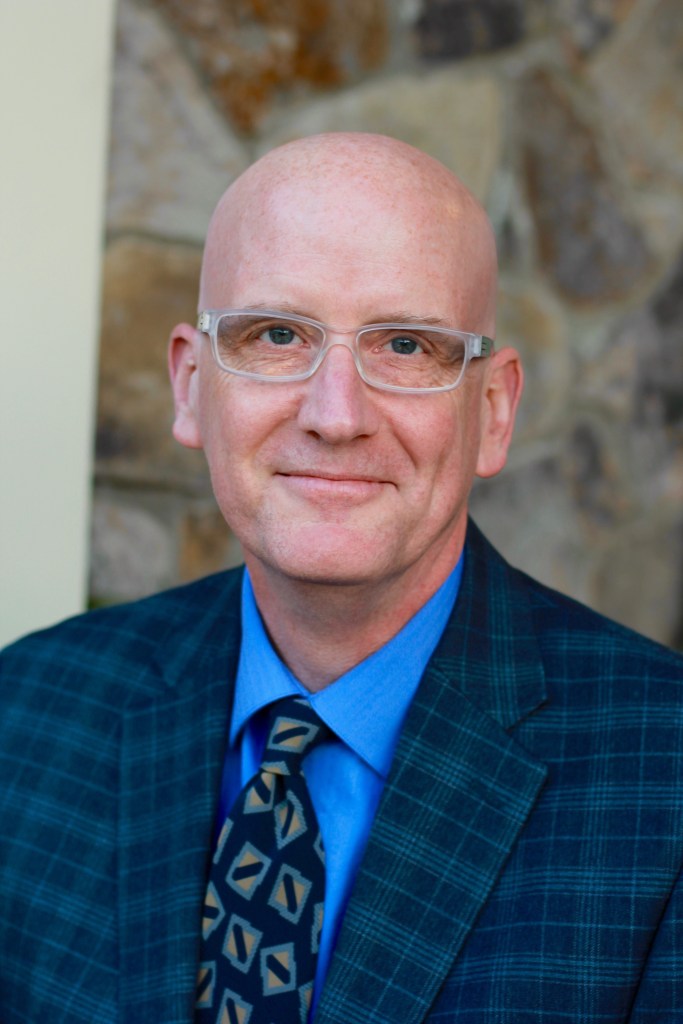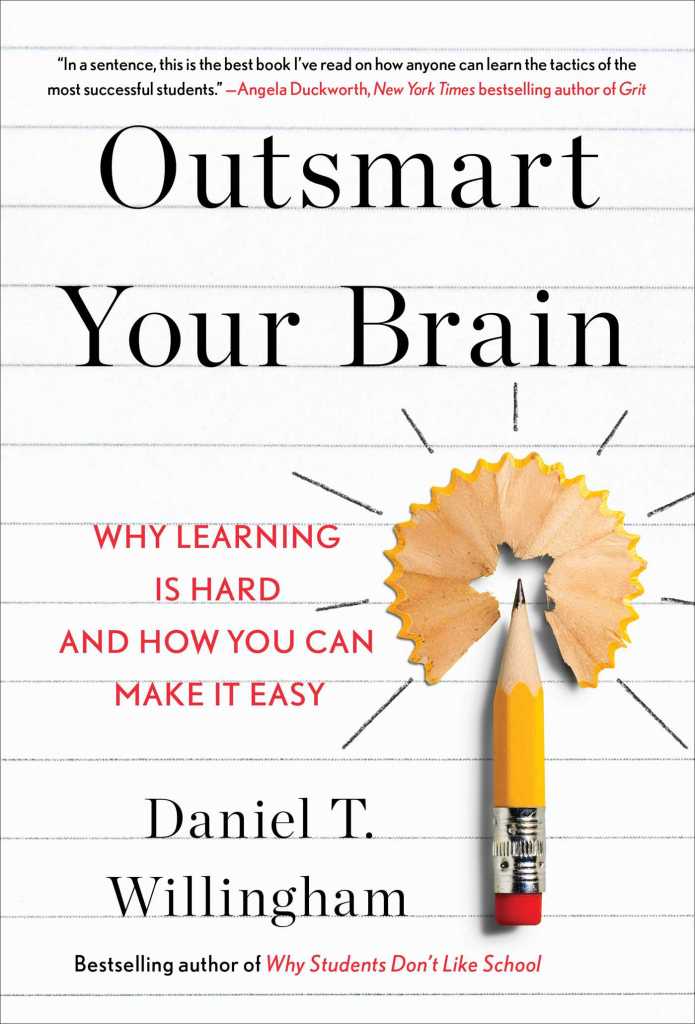
Daniel Willingham is a University of Virginia psychologist who frequently engages in pop culture battles armed with academic research. He has made it a personal crusade to persuade teachers that the idea of learning styles is a myth. (Research evidence shows that we all learn through a variety of ways: visually, aurally and kinesthetically.) For years, he has complained that teachers aren’t heeding research about reading instruction, and that many educators are misguided when it comes to teaching critical thinking. Now, Willingham has shifted his focus from teachers to students. In his new book, “Outsmart Your Brain: Why Learning is Hard and How You Can Make it Easy,” which will be released on Jan. 24, he points out all the wrong ways that students do homework, take notes in class or study for tests. (This interview has been edited and condensed for clarity.)

Q: You have almost 100 research-based tips on how to be a better student and almost all of them are just the opposite of what I did when I was in school. Don’t read over your notes to study for a test. Don’t use a highlighter when reading class assignments. Don’t combat procrastination through to-do lists. I’ve been studying wrong my whole life. Why is effective studying so counterintuitive?

A: Students are doing things that feel really effective at the moment. It’s not like these strategies are completely fruitless. They’ve made it to college with them. But they don’t know the counterfactual; they don’t know what would happen if they engaged in other strategies.
Q: It’s interesting that students may feel something is working even when it isn’t.
A: Right! The most dramatic example, which I write about in the book, is reading over your notes. It’s the most common study strategy and it’s bad in two ways. It’s not very good for memory. But it also increases this feeling of familiarity. And to me, probably the most surprising idea in the book is that you can think you know things. A strong feeling of familiarity leads people to judge that they know something. But it’s not the kind of knowing that’s going to be expected in the classroom. On a test, you need to connect information; you need to be able to explain it.
One of the best ways to study is to probe your memory. Create your own practice tests. Flashcards, I think, get a bad rap because there’s this idea that it’s just rote and it’s only going to be appropriate for learning vocabulary or something. But doing flashcards is essentially testing yourself so I think it’s a great idea. There’s no reason you can’t pose and answer conceptual questions in a flashcard format, including essay questions. This is getting you thinking about themes and connecting big ideas, and that’s going to be useful for studying.
Q: A decade ago, you wrote the book, “When Can You Trust the Experts?” In it, you showed readers how to evaluate whether a claim or an educational practice is based on evidence If you were to apply the skeptical approach to your current book on study tips, what would you say? Why should we trust your reading of the research here?
A: That’s a great question. Initially I thought about trying to be super clear about the evidentiary status of each of these tips. They vary. I thought I would do a grading system, like a number of ducks between one and five, to show how much research evidence there is behind each one. But I decided that would bog things down too much.
There is a bibliography that describes the citations. You could ferret out the evidence for any particular tip based on what’s there. Candidly, I don’t make it super easy for the reader. The bottom line is that I’m kind of asking people to “trust the expert.” Sorry.
Q: What’s a tip that has a lot of evidence and what’s a tip that doesn’t?
A: The idea that probing memory is an effective way to help cement things into memory seems to be a fundamental attribute of learning. That’s been very, very broadly tested across different subjects and different ages.
A tip that doesn’t have much evidence behind it is tip number four, where I say to be thoughtful about when to read. To my knowledge, there have been no experiments done on this at all. Instructors will almost always say come to class having done the reading. And that makes perfect sense. If they are lecturing in a way that assumes that you have done the reading and have to a certain extent mastered it, they are going to go beyond it. But sometimes it’s really not true at all. It’s frequently easier to listen than it is to read. If things aren’t perfectly clear, you can ask the instructor questions. You can’t query the author in the same way. So that’s the sort of thinking behind why I give this tip. It may make sense to do the reading after the lecture instead of before. But I don’t know of any direct evidence that it will be more effective.
Q: I love that the cognitive scientist is giving us permission to procrastinate our assigned reading.
A: Hold on, Jill. Let’s call this being strategic about deploying our time.
Q: And for students who don’t want to read your book, you’ve made several TikTok videos on some of your study tips! More seriously, you’ve written two books that explain research on reading, “The Reading Mind” and “Raising Kids Who Read.” What was your reaction to “Sold A Story,” Emily Hanford’s podcast about why schools aren’t teaching reading properly despite decades of research?
A: As someone who’s been writing about the science of reading for a long time, I can’t help but be excited and grateful to Emily Hanford for this reporting.
I think she basically got the research right. The idea that I think didn’t come across as clearly as it might have is that the importance of phonics instruction varies depending on what else the child brings to the table. Children who come to school with very strong phonemic awareness and very strong oral language skills frequently need less explicit reading instruction and phonics. Children who do not have those tools usually need more. The reason I think it’s so important is that it helps us understand how you could be an educator and downplay the importance of phonics.
I also saw complaints that “Sold A Story” didn’t talk about other important aspects of reading, like background knowledge. When something’s really complex, you don’t tackle the whole thing. But what does concern me is that it may lead to the impression that people like Emily think that all you need to do is fix phonics, and then you’re home free. So people who are not very receptive to this message now, may eventually say, “Well see, reading hasn’t been fixed. So therefore, you were wrong all along.”
This story about Daniel Willingham was produced by The Hechinger Report, a nonprofit, independent news organization focused on inequality and innovation in education. Sign up for the Hechinger newsletter.


At The Hechinger Report, we publish thoughtful letters from readers that contribute to the ongoing discussion about the education topics we cover. Please read our guidelines for more information. We will not consider letters that do not contain a full name and valid email address. You may submit news tips or ideas here without a full name, but not letters.
By submitting your name, you grant us permission to publish it with your letter. We will never publish your email address. You must fill out all fields to submit a letter.